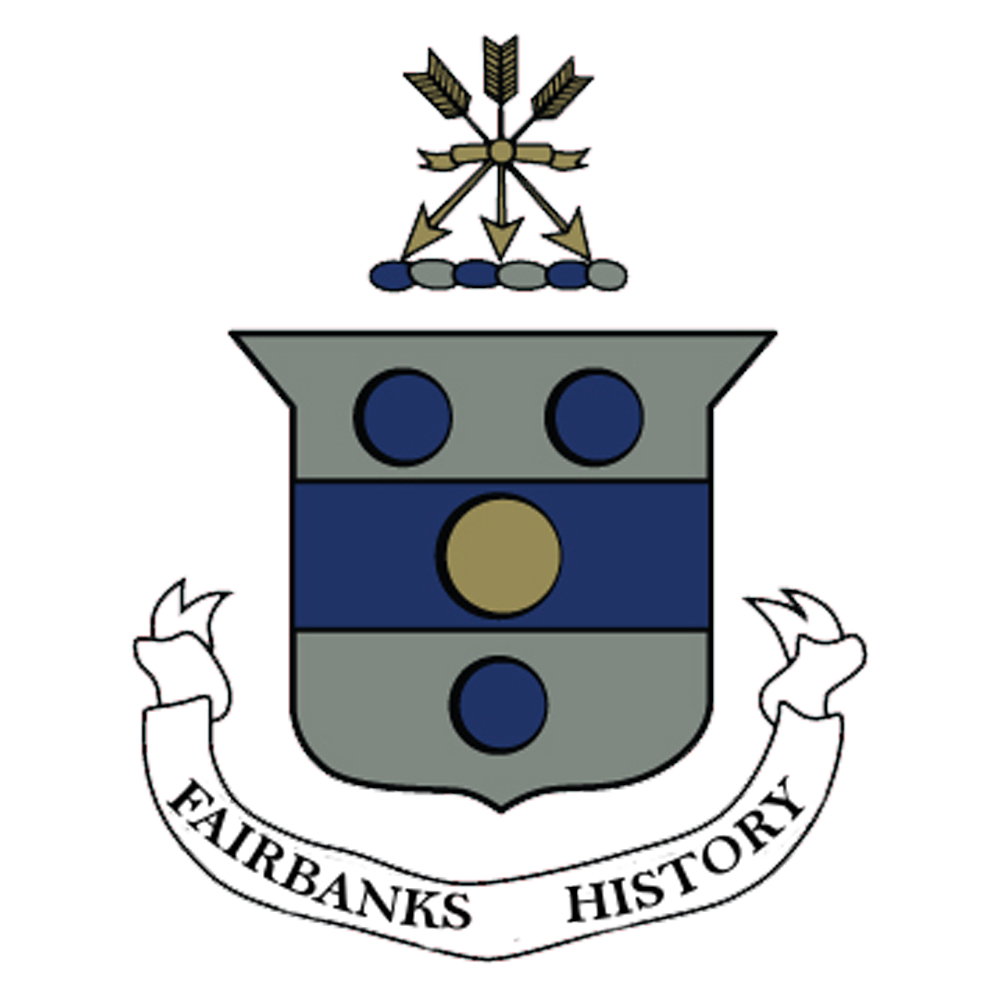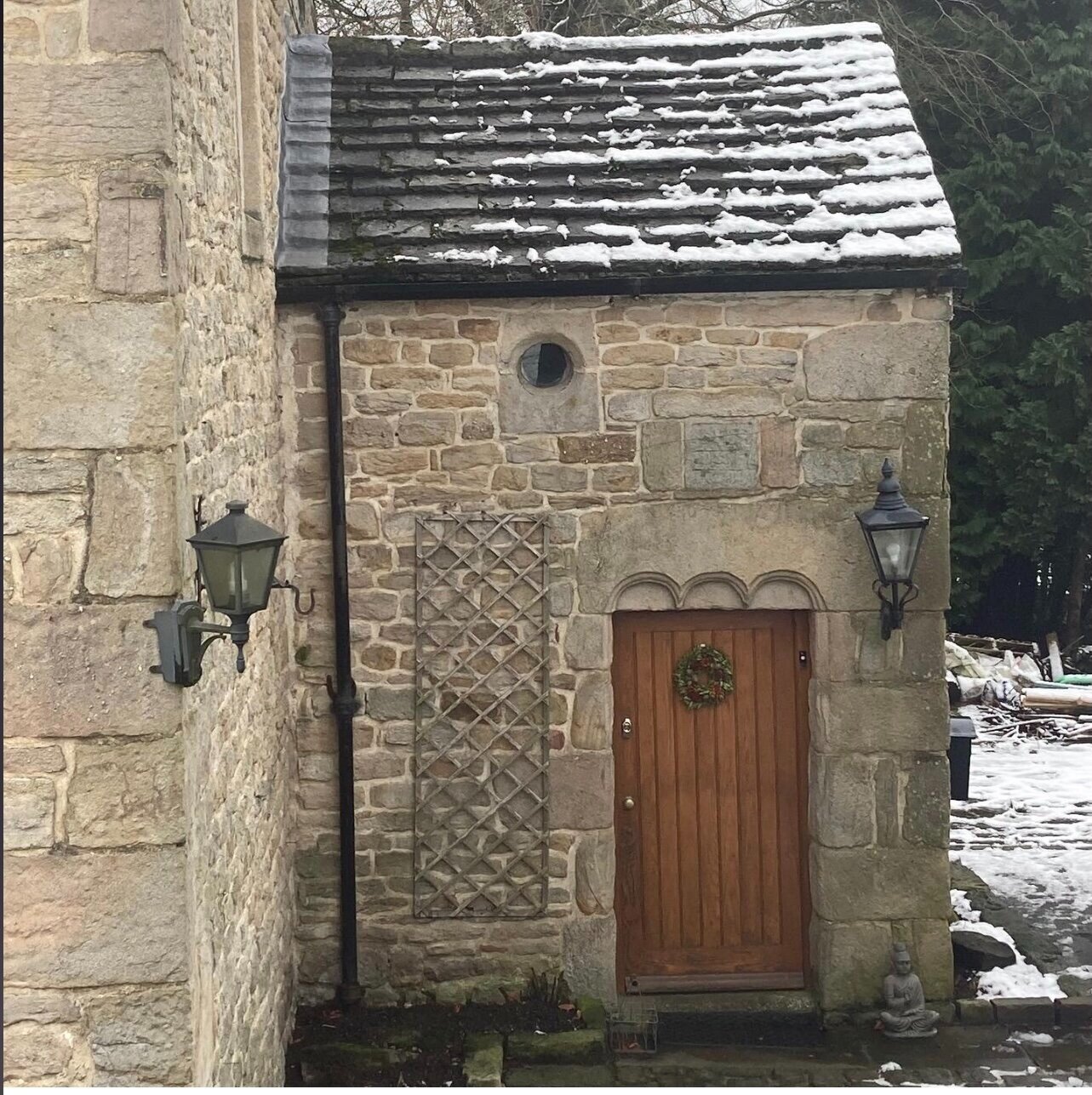The Last Will and Testament of Jonathan Fairbanks of Dedham Massachusetts 1668
Jonathan Fairbanks’s Last Days
Jonathan Fairbanks was seventy–four years old, “weake,” “sicke,” and said he felt his days were numbered when he made his last will and testament on June 1, 1668. His will was written in Dedham, Suffolk County, Massachusetts Bay Colony where he and his family had lived for thirty-two years after coming to the New World from England.
Jonathan and several of his older friends had been ill in 1651 during a epidemic noted by Edward Johnson in his book, Wonder-working of Providence in 1628-1651. The older men of Dedham were so sick or disabled in some manner that they were not to be required to pay Country Rates (taxes), possibly just the poll taxes, in 1651 (DTR, page 182).
We have no indication that Jonathan was ill after that, in fact he was working for a merchant in 1658. Grace, his wife, out lived Jonathan by five years.
Reviewing epidemic information of the era, there does not appear to be a major illness the year of Fairbanks's death. Any infirmity could have taken its toll on a man of Fairbanks’s age after toiling thirty-two years to create a life for himself and his family in the budding town of Dedham.
Fairbanks’s mind was sharp. His strong religious beliefs were presented from the first, as was the custom of wills of the Puritans of those days. He expounded on his relationship with God which seems to reflect his deep convictions. The first paragraph ended by Jonathan committing his soul to God.
Jonathan also gave directions about how his body should be handled after his death. His remains were to be returned to the earth and “desently buried” in a ”christian buriall.” He left the details of the burial up to the discretion of his executor, his first son, John Fairbanks.
Wills of Family Preceding Jonathan Fairbanks in Death
The Will of John Fairbank, Jonathan’s Father
Thornton in Craven, England 1625
John Fairbank (1547-1625) of Thornton of Craven is believed to be the father of Jonathan Fairbanks (Joseph and Swan, page 165-187). The father married at least three times and had a family with each of the last three wives. Jonathan was the offspring of the second wife, Isabelle Standcliffe. She died when Jonathan and his sister were very young. John, the father, took a third wife, Ellen Parker, when Isabelle died. They had a third set of children. It is believed that Jonathan may have been raised by a relative, not in the family of the third wife.
Jonathan’s father, John, died at the age seventy-eight in 1625. That year a severe plague ravaged England. It appears John’s death was sudden. His will was made only three days before he was buried at St. Mary’s Church in Thornton.
The father amassed land and wealth in the area of Thornton in Craven, possibly in conjunction with his sons by his first wife. In the early 1600’s, the tradition of primogeniture, giving the family estate to the first son, was still prevalent. Prior to that time, it was lawfully mandated.
Below is believed to be the house of John Fairbanks of Thornton in Craven, England. He probably bought the land in 1617 and probably built the house in 1617 according to the present owners. The small entry is registered as a level II 1618 historic architectural structure in England. Later a blog will be posted about John Fairbanks and the Middle Haigh Farm. Photos courtesy of the new owners Chris and Anne Howard. Instagram site: @ourlistedhome
In John Fairbank, the father’s, will, he stated that he left land to his son, George, a son of his first marriage. He was probably the living primogeniture. He also stated he left land to each of his sons from the third marriage.
There were land transactions between George Parker, the third wife’s father and John Fairbanks about the time of marriage, so this could have been a factor for the sons of the Fairbanks/Parker marriage receiving land.
However, Jonathan, by the second marriage received only a daughter’s portion of a third of the father’s estate. That one-third was divided among the three daughters and Jonathan.
At that time, sons were given more in the father’s wills than the daughters. For Jonathan to receive only a fourth of the daughters’ portion of the inheritance and all other sons received land, it could have been seen as a slight by the father.
The daughters were also given 40£ each when they came of age. Jonathan did not received money (Joseph and Swan, page 165-187). Jonathan was about 30 years old and married at the time of his father’s death. He still lived in England.
Will of George Fairbanks 1650
Half-Brother of Jonathan Fairbanks
In 1650, Jonathan Fairbanks, now liviing in Dedham, Massachusetts Bay Colony, received a copy of the will of George Fairbanks. George is believed to be Jonathan’s half-brother by the first marriage of their father. George is also believed to be the living primogeniture at the time of the father’s death.
George, a clothier, lived in Sowerby, West Yorkshire, England at the time of his own death. The executor of George Fairbanks’s will sent a copy to Jonathan Fairbanks in Dedham, Massachusetts.
The copy of George’s will was addressed as:
George Fairebanke his
last Will &
Testam’t
For his Louinge (loving) Cusen (cousin) Jonathan
Fayrebancke in new Ingland,
these
Deliu’r (deliver)
Note: Cousin was used for various relationships as a general term. It was used to refer to any relative outside the immediate family circle. In this case, it could have been used because George and Jonathan were not full brothers. Remember also, the executor addressed the post.
In George Fairbanks’s will, he addressed many relatives and friends, but Jonathan Fairbanks was not named as a recipient in the will. Yet he still received a copy.
Ruth Fairbanks Joseph published this will in her papers, cited before. Pictures of the contents of this will was sent to me. They were taken a relative who visited a historical library in Halifax, England, but did not include the source.
Explanation of Jonathan Fairbanks’s Will 1668
Did traditions and/or the two previous wills mentioned influence Jonathan Fairbanks when he decided to whom he left land and inheritance?
It appears that the wills of that time usually provided for the wife first, after the deceased debts were paid. Jonathan did the same.
Grace Fairbanks, Jonathan’s Wife
Perhaps, Jonathan took care of all financial obligations before he wrote his will. No debts were mentioned. Grace was to receive any money owed to him after his death. Jonathan essentially gave her all of his moveable estate – any possessions that could be moved whether inside the house or outside which included all farming implements and cattle. Grace was allowed to sell or dispose of these at her discretion.
Grace’s inheritance did not include Jonathan Sr.’s land, houses, and town privileges which were passed down to the oldest son, John, the primogeniture. However, Grace would live in the family house and have the rights to use all the grounds, yards, and pastures as she needed.
Grace was also given an eight pound annuity per year to be divided into two equal parts during the year. Jonathan provided for Grace until her death. She died five years later, in 1673.
As Jonathan designated the inheritance to his children, he was specific in how much and how the money should be appropriated. He even stated the currency to be used.
Each of the living children were to receive 16£ total, except John, the primogeniture. The sixteen pounds would be divided in two payments. Each child, in line, would get their first payment of 8 pounds after Grace died. Only one child would be paid their 8£ portion in any given year. After all the children received their first payment, the rotation started over again.
Upon Grace’s death, George’s would receive first payment. If the Medfield land, tools etc. that his father gave George equaled his first portion, Mary would receive her first payment the year after October 28, 1673.
Jonas would receive his first payment after October 28, 1674.
Jonathan would receive his first payment after October 28, 1675.
Then appropriations would start over with George getting his second payment of 8£ after October 28, 1676, until all payment were complete in 1679.
George Fairbanks, Second Son and Child
As above, Jonathan addressed his second son, George. He gave George sixteen pounds in two payments. Of that amount, Jonathan felt that the land grants in Medfield that he gave George, plus various tools, and “small” things would be appraised at about eight pounds, half of the total amount. This would be considered Georges first payment.
Mary Fairbanks Smith, Third Child
Example of Puritan Woman’s Clothing
Mary (Fairbanks) Smith was named next. She was to receive an amount equal to the sons, sixteen pounds in two payments. Her first payment was to occur in the year after George received his first payment. Jonathan made it clear that all Mary’s money was to be given to her to use at her discretion, not to her husband, Christopher Smith. At that time, the wife’s property was considered the property of the husband.
In addition to Mary’s share of the inheritance, Jonathan gave her 3£ for a suit of clothes. This money was to be paid to her within three months of her father’s decease.
Clothing was a very expensive and valued possession. Often a will bequeathed the deceased’s personal clothes to a family member or friend. Clothes were often given at the end of a term of an indentured servant. Perhaps, Mary had rendered services to her father or mother during his lifetime or illness that merited this special gift.
Jonas Fairbanks, Fourth Child and Third Son
Jonas went to Lancaster, Massachusetts, to help the family friend, John Prescott, to develop the town. Perhaps he left as early as 1653 after he quit working at Hammersmith, the ironworks in 1652.
Just after 1655, Jonas had land in Lancaster, Massachusetts. He married John Prescott’s daughter, Lydia in 1658. Since most of the bequeaths to the children started after the death of the Grace, the earliest gift would have been given in 1674, Jonas’s would be due in his portion in 1675.
Jonas was killed in the raid of Lancaster, Massachusetts, during the King Philip’s War on February 10, 1674/75. He would not have received his inheritance from his father. I assume, his family, Lydia and six living children would have benefited from it in some way. More research is needed to find this answer.
Susan Fairbanks Day, Fifth Child
Susan, Jonathan’s second daughter and fifth child, died in 1659, leaving her husband Ralph Day with their four living children. The oldest one was about eleven years and the youngest was about one and one-half at the time of Susan’s death. Ralph remarried about four months after Susan died.
Susan’s portion of Jonathan’s bequests was not mentioned until after all of the other children were addressed.
Jonathan provided for Susan’s family in his will. He gave Ralph Day 40 shillings (equivalent to two pounds) to be paid six months after Grace’s death. Jonathan also gave each of Susan’s four children 40 shillings to be paid to them when they attained lawful age. The total received by this family was 10£. The children were not to receive their gifts until all of Jonathan Sr.’s living children had been paid their full amounts.
Jonathan Fairbanks, Sixth Child and Fourth Son
Jonathan Jr., the fourth son, was also given the equal portion of 16£ in two separate distributions. However, Jonathan Sr. stated that Jonathan Jr. had been given a parcel of land that was valued at 5£. That would be included in his first payment of 8£. Jonathan Jr. also had a debt to his father. This was to be covered by Jonathan Jr’s first payment.
Special Gift to a Granddaughter
A special item was given to Jonathan Sr.’s first granddaughter, Sarah, the daughter of John Fairbanks. She was to receive “one young beast between one and two years of age.” This animal was taken from the stock which was left to Grace.
Cow and maiden. Picture taken at Plimouth Pantation by Sharmin Fairbanks McKenny 2010
An additional three pounds was to be given to Sarah when she became of lawful age. Sarah was born December 9, 1684. She would be twenty-three years old at the time of her grandfather’s death. Note, Sarah was given the same amount as Mary, the daughter, was given for a suit of clothes.
Perhaps Sarah had helped her grandmother over a time to help with the dairy and cheese making, thus garnering a gift of a cow and money.
John Fairbanks, First Child and First Son
Primogeniture
Only then, did Jonathan Sr. mention his first son, John Fairbanks. He was to receive “all my houses and lands not given to George and Jonathan Jr. He also received all Jonathan Sr.’s common rights and town privileges. John was to be granted all of the father’s lands upon his death and have rights to all of his houses and yards at the end of four months after his father’s death. Remember, Grace had the right to use all of the yards, grounds, and pastures also.
At that point Jonathan Sr. named John Fairbanks, the executor of his will. He asked Eleazer Lusher and Peter Woodward Sr. to oversee and assist the Executor as needed.
Witnesses of the will were William Avery and Thomas Metcalf.
Jonathan Fairbanks placed his mark on the document and affixed it with his seal. The transcription of his will can be found at https://www.familysearch.org/ark:/61903/3:1:3Q9M-C9Y5-P2H3?i=210&cat=12056
The “mark” as seen on the transcription of Jonathan’s will closely resembles the first letter of his first name. There is no cross line in the “mark”, but perhaps that line in the first letter of his name is his script writing to adjoin it to the “o” that follows.
Jonathan Fairbanks’s signature in earlier years. Signature taken from Don Gleason Hill’s “The Early Records of the Town of Dedham, Massachusetts” page 221 and 223. He found them in the Massachusetts Archive Vol CXI, page 29.
The seal is difficult to discern on the transcription of the will unless enlarged. Here is my replication of the seal as it is found on the transcription of Jonathan’s will.
Jonathan Fairbanks’s 1668 will can be easily read at Fairbanks Family of America: 1636-1697 by Lorenzo Sayles Fairbanks.
Or the actual transcription can be found at Family Search.com https://www.familysearch.org/ark:/61903/3:1:3Q9M-C9Y5-P2H3?i=210&cat=120561
Summary of Jonathan Fairbanks’s Will
Jonathan provided for his wife, Grace, until her death. She was not given 1/3 of his estate as his father gave his third wife. Grace received all of his movable estate and had use all of his immovable estate as long as she lived. He made sure she was cared for before any of the children received their allotments.
Fairbanks did follow the tradition of primogeniture by giving the land, not already given to George and Jonathan Jr., and the houses, town commons and privileges to his oldest son. No doubt, that came with responsibilities for the mother, duties as the executor, as well as, burial and other responsibilities.
Jonathan treated his other sons and his living daughter more or less equally. Small gifts were given, but perhaps they were in special consideration of services rendered. He even provided for the husband and children of his deceased daughter, Susan.
Fairbanks was very exacting about how his will should be carried out. He obviously was of sound mind and was also attested to be capable. After moving his family to the fledgling town of Dedham and thirty-two years of providing for his family in a most respectable manner, he was able to leave a significant amount to each family member. This is something he may not have been able to do if he had remained in England, considering he was given no land in his father’s will in England.
Perhaps this will was the culmination of Jonathan’s life’s work and a successful ending to much stress and labor. In Puritan tradition, Jonathan would have considered all of his work as his responsibility to God. He might have felt in God’s favor after amassing a successful estate to pass down to his wife and children.
Other Resources:
Joseph, Ruth Fairbanks and James Swan. “Jonathan Fairbanks of ... New England Historical and Genealogical Register 166 (2012): 165-87.
Will of George Fearbanke of Sowerby in Halifax (July 1650), found in a will bundle, at the Borthwick Institute.
Hill, Don Gleason, The Early Records of the Town of Dedham, Massachusetts
Next Up…
The Colonial Burial of Jonathan Fairbanks of Dedham Massachusetts













